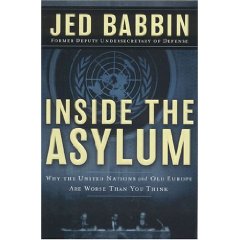Edit of 20 Dec 07 to add links.
This is a very personal story by a female case officer who served overseas, did some very hard time over the course of at least fifteen years with the Directorate of Operations, and has produced a very rare book, one that provides some useful documentation of the ups and downs of clandestine operations under five Directors of Central Intelligence (this would be even more impressive if the five had not all been appointed in the space of six years).
This is, without question, one of the best books available on the intimate subject of the clandestine culture, and it offers some lovely gems and personality assessments that intelligence professionals will appreciate more than the general public. I have taken one star off for lack of detail and context, but strongly recommend the book to anyone who has served in the clandestine service and wishes to be reminded of the dark years, and to anyone who has not served in the clandestine service, and wishes to have a small glimmering of the down side of it all.
Although the book does a good job of weaving a somewhat superficial (that is to say, the highlights, not the irrelevant) history of counter-terrorism with a history of bureaucratic mis-steps by a series of DCIs, and the book does a superb job of shredding both CIA lawyers and CIA security officers and CIA's complete lack of counterintelligence, this is primarily a book about the failure of the Directorate of Operations as a tribe, not about the failure of the US Government in the global war on terrorism.
In retrospect, 1983-1985 are the years when the USG and the IC should have gone to “General Quarters,” and 1992 was the year when Congress should have risen to its role and passed the Boren-McCurdy National Security Act of 1992. No one comes out of this book looking better than Senator Dave Boren (today the President of the University of Oklahoma) and Congressman Dave McCurdy, both from Oklahoma, both in charge of the respective committees on intelligence, and both bright men with good hearts who were unable to prevail against their less enlightened colleagues.
The author does an excellent job of capturing some of the really low moments in CIA's clandestine history (such as in the 1990's when case officers were advised to take out legal liability insurance, both to protect themselves from CIA witch-hunts and to protect themselves from witch hunts mounted by others against which CIA would not be helpful to them).
The author, who got into trouble over some Palestinian relations that led to her being fired, has *not* written a bitter or a revenge book. This is an excellent and useful book, and for those who wish to study the CIA's clandestine service and its ups and downs in the 1980-2005 timeframe, this is destined to be a core reference. It captures nuances and insights that are not available to outsiders in any other source.
I do, however, want to highlight the author's brief discussion of CIA Security and the shortcomings of CIA security, the excessive reliance by CIA Security on the polygraph (which both Ames and the Cuban agents that blew two of my classmates passed), and the “room from hell” that is created by CIA Security and CIA management for those who are “suspect,” more often than not without cause. I was stunned to learn that in the post-Ames environment 400 case officers (400–that is, by some accounts, at least 10% and perhaps as much as 30% of the entire case officer corps!) failed the polygraph as roughly administered by CIA Security, and were referred to the FBI for full field investigations. I cannot articulate the depth of my disdain for any CIA manager that would allow that to happen.
There is a great deal wrong at CIA, and I give the author top marks on her discussion of CIA's over-all attitude of denial and deception across two decades; and her helpful discussion of the culture of deceit and self-service that has prevented the clandestine service from adjusting to reality and being more effective in protecting America. However, as the author is careful to point out, CIA's failure take place in the context of the failures of the FBI, of the White House, and of other governments.
This is not a book I recommend for applicants to the clandestine service, mostly because I do not want to see them dissuaded from applying. The clandestine service is the last great adventure left in the U.S. government, outside of special operations, and no matter how screwed up it might yet be, there is no greater honor and no greater life-affirming engagement, than to be a case officer in the service of your country. Miles Copeland, Without Cloak or Dagger : The truth about the new espionage– remains my single best suggested work for applicants to the clandestine service.
See also, for the good in CIA:
First In: An Insider's Account of How the CIA Spearheaded the War on Terror in Afghanistan
Jawbreaker: The Attack on Bin Laden and Al-Qaeda: A Personal Account by the CIA's Key Field Commander
The Main Enemy: The Inside Story of the CIA's Final Showdown with the KGB
And also the bad:
Legacy of Ashes: The History of the CIA
None So Blind: A Personal Account of the Intelligence Failure in Vietnam
Who the Hell Are We Fighting?: The Story of Sam Adams and the Vietnam Intelligence Wars
One last comment: over the next ten years I want to reduce the secret intelligence budget by 80%, down to $12 billion, and redirect the savings into national education and global connectivity for the five billion poor. You can learn more by seeking out information on collective intelligence, peace intelligence, commercial intelligence, gift intelligence, cultural intelligence, and Earth Intelligence. My first book, On Intelligence: Spies and Secrecy in an Open World remains the standard work on why this needs to be done.










